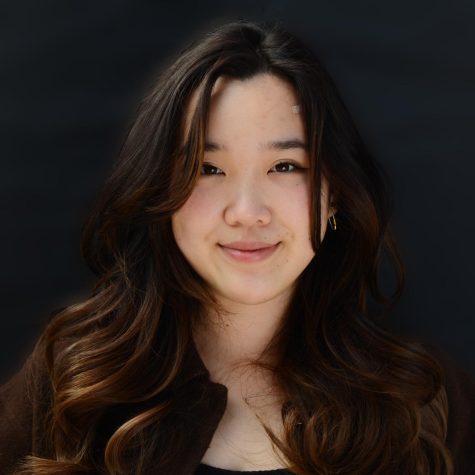In conversation with Roxana Pianko
Upper school history teacher discusses the significance of the Holocaust and its relevance to today
January 28, 2021
On International Holocaust Remembrance Day, Harker Aquila spoke with upper school History of the Holocaust and Genocide teacher Roxana Pianko, whose family originates from Romania. Pianko touched on topics of remembering the Holocaust, combating anti-Semitism and normalizing discussion about the Holocaust and other genocides in order to effectively educate our community and beyond.
“As painful as it is to engage with the subject matter of genocide, it’s so important. Your generation inspires a lot of us, and you all work so hard on these things: kindness, empathy and being a part of movements that really matter,” Pianko said. “It’s really important to have a desire to engage in these subjects, to learn about them, to be able to better understand human behavior and why people do what they do.”
In the classroom, Pianko says that she actively tries to engage her students through empathy, emphasizing the importance of “never forgetting” the Holocaust. Together, Pianko and her students study diaries of survivors and those who have passed away, particularly those of teenagers and young adults around the same age that her students are.
“It’s important to understand that these were humans, not just something that you read on half of a page in a textbook,” Pianko said. “You learn these young people went to school, that they loved to write, that they were artists, that they loved sports, that they were just exactly like you. One day, the most horrifically unimaginable thing happened to them, and they had no choice in the matter.”
Pianko feels gratified to know that her class continues to provide a safe area of learning and growth, of nuance and responsibility.
“History matters, all of it matters,” Pianko said. “A really important thing for me is being able to have access to that kind of material and then having my students come back to me even years later and to be able to say ‘I’ve never forgotten that assignment where we read those diary entries, it still stays with me now,’ and I think that’s really powerful.”


















![“[Building nerf blasters] became this outlet of creativity for me that hasn't been matched by anything else. The process [of] making a build complete to your desire is such a painstakingly difficult process, but I've had to learn from [the skills needed from] soldering to proper painting. There's so many different options for everything, if you think about it, it exists. The best part is [that] if it doesn't exist, you can build it yourself," Ishaan Parate said.](https://harkeraquila.com/wp-content/uploads/2022/08/DSC_8149-900x604.jpg)




![“When I came into high school, I was ready to be a follower. But DECA was a game changer for me. It helped me overcome my fear of public speaking, and it's played such a major role in who I've become today. To be able to successfully lead a chapter of 150 students, an officer team and be one of the upperclassmen I once really admired is something I'm [really] proud of,” Anvitha Tummala ('21) said.](https://harkeraquila.com/wp-content/uploads/2021/07/Screen-Shot-2021-07-25-at-9.50.05-AM-900x594.png)







![“I think getting up in the morning and having a sense of purpose [is exciting]. I think without a certain amount of drive, life is kind of obsolete and mundane, and I think having that every single day is what makes each day unique and kind of makes life exciting,” Neymika Jain (12) said.](https://harkeraquila.com/wp-content/uploads/2017/06/Screen-Shot-2017-06-03-at-4.54.16-PM.png)








![“My slogan is ‘slow feet, don’t eat, and I’m hungry.’ You need to run fast to get where you are–you aren't going to get those championships if you aren't fast,” Angel Cervantes (12) said. “I want to do well in school on my tests and in track and win championships for my team. I live by that, [and] I can do that anywhere: in the classroom or on the field.”](https://harkeraquila.com/wp-content/uploads/2018/06/DSC5146-900x601.jpg)
![“[Volleyball has] taught me how to fall correctly, and another thing it taught is that you don’t have to be the best at something to be good at it. If you just hit the ball in a smart way, then it still scores points and you’re good at it. You could be a background player and still make a much bigger impact on the team than you would think,” Anya Gert (’20) said.](https://harkeraquila.com/wp-content/uploads/2020/06/AnnaGert_JinTuan_HoHPhotoEdited-600x900.jpeg)

![“I'm not nearly there yet, but [my confidence has] definitely been getting better since I was pretty shy and timid coming into Harker my freshman year. I know that there's a lot of people that are really confident in what they do, and I really admire them. Everyone's so driven and that has really pushed me to kind of try to find my own place in high school and be more confident,” Alyssa Huang (’20) said.](https://harkeraquila.com/wp-content/uploads/2020/06/AlyssaHuang_EmilyChen_HoHPhoto-900x749.jpeg)










